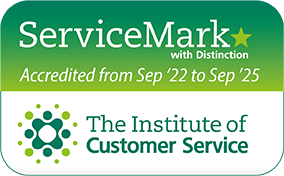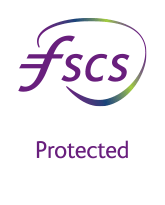Authorised Push Payment (APP) scams happen when someone tricks you into transferring money to an unintended account.
The rise of social media and online shopping has led to an increase in these types of scams, offering criminals new and innovative ways to part you from your savings. With millions of pounds lost in the UK every year due to this type of fraud, staying vigilant safeguard yourself is vital.
APP scams come in all shapes and sizes, and fraudsters constantly evolve their methods - here are some common examples to watch out for.
Romance scams
As we approach Valentine's Day, many of us turn our thoughts towards romance. However, romance scams aren't only reserved for February, with scammers using fake dating site profiles to build relationships year-round.
Once trust is established, the scammer typically asks for money for things like flights, debts, or business ventures. In 2023, Meta platforms like Facebook and Instagram were associated with 31% of all romance scams, which is more than all dating websites combined.
Upfront payment scams
This is where criminals ask for a pre-payment to ‘unlock’ something such as an inheritance, delivery, or cash prize.
Purchase scams
Purchase scams involve fake advertisements for products or services, often via social media sites, to trick you into purchasing something that doesn’t exist. This was the single most reported type of scam in 2023.
What can we do about it?
According to the Payment Systems Regulator (PSR), victims of fraud experience harm to their confidence, mental health, and trust in financial institutions, with 20% saying experiencing fraud made them anxious or depressed.
As much as possible, we want to prevent our members from experiencing APP fraud, and have processes in place to ensure safety when making payments, including:
-
Regularly training employees to identify situations where we believe you may be at risk.
-
Getting to know you to understand and pinpoint what appears to be an unusual transaction, and asking additional questions when we have concerns.
-
Asking you to consider warnings when making electronic payments from your Newbury account(s).
-
Only allowing funds to be transferred to your personal bank accounts, not other people's.
-
Promptly investigating all APP fraud claims as per the reimbursement scheme launched by the PSR ast year.
-
Getting out into the community to educate people on keeping their money and information safe. Most recently, we visited Turner Place Assisted Living in Thatcham.
Ian Bligdon, Senior Compliance Analyst, was one of the presenters at the fraud education session at Turner Place. He commented:
“It was excellent to support people in our local community by increasing awareness of scams and providing advice on how they can better protect themselves from fraudsters. We were able to help the residents with a couple of queries regarding being the victim of scams previously and warn them of the common scams circulating at the time.”

Learn more
Find out more about fraud, scams, and how we keep you safe on our fraud and online security hub. You can also contact us directly if you ever have any doubts about a payment someone is asking you to make - call us on 01635 555700 or visit your local branch.




